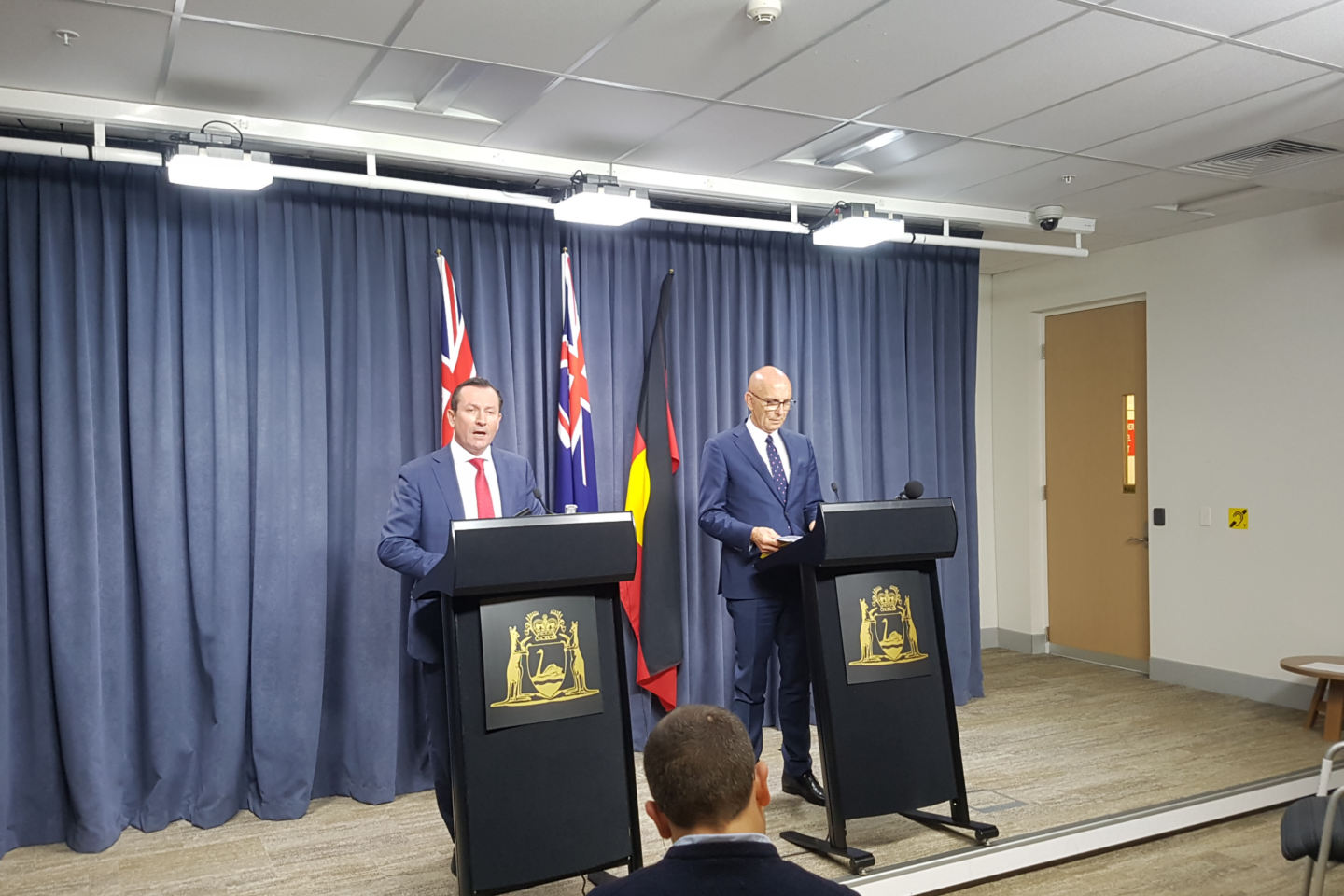'Palmer’ Bill wrap up: Quigley confident on constitutionality, Harvey confirms Liberal support, Mineralogy’s border challenge withdrawal offer.


A law to shortcircuit a $28 billion damages claim by Mineralogy will not hit the same High Court hurdle Bell Group legislation did, Attorney-General John Quigley believes.
The government last night revealed a secret plan to change its state agreement with Mineralogy, to head off an ongoing legal dispute with the company controlled by Clive Palmer.
Opposition leader Liza Harvey today confirmed the Liberal Party would pass the law through parliament, while raising concerns about accountability and transparency.
Speaking to media today, Mr Quigley said he was confident this legislation would not suffer the same fate as the previous government’s Bell Act, which had been created to end the long running battle over liquidation of the Bell Group.
That law was ruled invalid because of a conflict with the federal government’s legislation around prioritisation of tax receipts.
Mr Quigley said there would be no inconsistency between the ‘Palmer’ Bill and Commonwealth law.
Law firm Clayton Utz had run the rule over the Bill, including its constitutionality, he said.
“We rate (a High Court loss) as a very, very low risk,” Mr Quigley said.
“We’ve had the State Solicitor’s Office and solicitor general search for any possible inconsistency with the Commonwealth law, and none was identified.
“We were aware that the Liberal opposition would be briefed late in this matter, and they might need legal advice, so I instructed the State Solicitor to go to the firm that is usually the firm of the Liberal Party, Clayton Utz.
“They came up with some possible avenues of attack, they were then incorporated into the Bill.”
Speaking to Business News last night, Mr Palmer has already warned he will challenge the legislation in the High Court.
HHG Legal Group executive chairman Simon Creek, speaking on behalf of HHG's commercial litigation team, said Mr Quigley had reason to be optimistic about the likelihood of winning a High Court challenge.
“One can never be overly confident with any matter being heard by the High Court of Australia,” Mr Creek said.
“It is not at all uncommon for our court of ultimate appeal to disagree with the findings of inferior courts, especially when the public policy considerations of a finding have the potential to be so politically charged.
“Having said that, if we were asked to pick a side on this one, we would be backing the state government.
“Mr Quigley will have been briefed by some of WA's brightest legal minds.
“Having read the relevant documentation, it is clear the state has grounds for a positive attitude, notwithstanding the well financed and determined case on the other side."
Whichever way the dispute goes, it has created a unique precedent.
“A proponent has never gone down this route before, to arbitrate and seek damages for a ministerial decision under a State Agreement Act,” Premier Mark McGowan said.
“That is a very bad precedent.
“BHP, Rio Tinto, all these companies, have never done this before.
“If every time the state development minister, environment minister, or anyone who made a decision, companies with very deep pockets could sue the state for billions of dollars it would be untenable.
“The others have never done it before and they know it's not the way to resolve these things.”
But passage of the Act would also be a rare legislative intervention in a legal dispute, which Mr McGowan said was only necessary because of extraordinary circumstances.
Border battle
Mr Quigley tabled in parliament a letter from Mineralogy, which linked the arbitration process with the very public dispute over the state’s border.
That had been sent on August 2.
Mineralogy requested the arbitration be moved to Canberra so Mr Palmer could attend the arbitration in person.
“As the state is aware, Mineralogy is currently pursuing a High Court challenge against the state’s border closers,” the letter signed by Mineralogy’s in-house counsel said.
“One of Mineralogy’s concerns is ensuring all its team and representatives are able to attend any hearing of the arbitration.
“Mineralogy’s High Court case has caused considerable stress in the community when it became apparent last week that it may be successful.
“If the state can agree for the arbitration hearing being held in Canberra, Mineralogy could be agreeable to withdraw its High Court challenge on that basis with each party to pay their own costs.”
Damages
Mr McGowan was today stressing the potential for a massive damages bill, citing a $30 billion figure.
That would have led to a levy on miners, on residents of WA, and potentially a Commonwealth bailout, he said.
But it was unclear what advice the government received which suggested the full damages bill would have been in play.
Mr Palmer has claimed he picked a very high number as a negotiating tactic.
Mr Quigley has already said the government had many strong defences available.
Mr Creek said it was unlikely the dispute would ever have led to government paying the full claim, but there would be many considerations.
"The legal and financial reasons for such a strong view are many and varied,” he said.
“This is complex litigation at the highest level, involving very large sums of money and in simple terms, a dispute between the private and public sectors.
“No responsible state government, given the facts as we understand them, would be likely to pay out such a large claim, undefended and without considerable attempts to reduce the burden of such a settlement upon the taxpayer.
“Some cases are well worth fighting.
“Legal costs are almost insignificant compared to what is at stake here."













